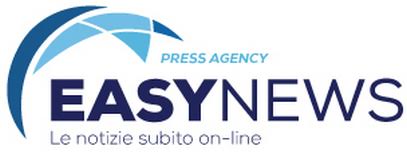
New €10 million WHO–EU project will translate evidence into action to reduce alcohol consumption and harms
Copenhagen, 7 December 2022
Eight of the 10 countries with the highest level of alcohol consumption in the world are located in the European Union (EU), according to the Global Status Report on Alcohol and Health 2018. WHO data show that cancer is one of the leading causes of alcohol-attributable deaths in the EU. Even small amounts of alcohol can negatively affect people’s health – for example, about half of all alcohol-attributable breast cancer cases in the EU are caused by light to moderate alcohol consumption.
This is why WHO, with support from the EU’s European Commission, is initiating the Evidence into Action Alcohol Project (EVID-ACTION), which will contribute to delivering on the objectives of Europe’s Beating Cancer Plan.
EVID-ACTION is a €10 million project that will work to increase awareness among the public and policy-makers of the links between alcohol consumption and cancer risks. It will support evidence-based alcohol policy measures to reduce these risks, and develop and support the implementation of related training packages for countries.
The 3 specific objectives of EVID-ACTION are focused on:
- health warning labels for alcoholic beverages
- capacity-building, health literacy, public knowledge and advocacy
- alcohol screening and brief interventions.
EVID-ACTION: a pathway to reduce health and economic harms from alcohol consumption in 30 countries
“The EU has the highest level of alcohol consumption in the world. Not only can alcohol cause life-threatening diseases, it can also cause economic harms and exert financial pressures on the social and health-care systems of the EU countries, which are already stretched due to the COVID-19 pandemic, conflicts and humanitarian emergencies,” said Mr John F. Ryan, Acting Deputy Director-General for Health and Director of Public Health, Cancer and Health Security at the European Commission.
“The WHO–EU Evidence into Action Alcohol Project supports actions across the entire EU, as well as Iceland, Norway and Ukraine, to reduce harmful use of alcohol,” added Mr Ryan.
“Alcohol is a Group 1 cancer-causing carcinogen, in the same category as arsenic, asbestos and tobacco. Yet most people are unaware of the many risks that alcohol poses to their health,” explained Dr Hans Henri P. Kluge, WHO Regional Director for Europe. “This project, generously supported by the EU, is set to address this by improving labelling and health literacy, and will help deliver on the goals of Europe’s Beating Cancer Plan, which aims to tackle cancer across the entire disease pathway – from prevention and early detection to diagnosis, treatment and quality of life for cancer patients.”
WHO alcohol data for EU countries: cancer and years of life lost
Cancer is the leading cause of alcohol-attributable deaths in the EU, with a share of 29% in 2016. In the same year, nearly 80 000 people died of alcohol-attributable cancers in the EU, and about 1.9 million years of life were lost due to premature mortality or disability.
ENDS
For further enquiries, please contact:
Aleksandra Olsen
Communications Consultant
WHO European Office for the Prevention and Control of Noncommunicable Diseases (NCD Office)
Igor Kryuchkov
Communications Consultant
WHO European Office for the Prevention and Control of Noncommunicable Diseases (NCD Office)
ADDITIONAL MATERIAL
Making the WHO European Region SAFER: developments in alcohol control policies, 2010–2019 (2021)
https://www.who.int/europe/publications/i/item/9789289055048
Alcohol is one of the biggest risk factors for breast cancer
Europe’s Beating Cancer Plan (2022)
https://health.ec.europa.eu/system/files/2022-02/eu_cancer-plan_en_0.pdf
Global status report on alcohol and health 2018 (2018)
This information was brought to you by Cision http://news.cision.com
If you would rather not receive future communications from WHO Regional Office for Europe, please go to https://optout.ne.cision.com/en/nnLVbXTPkaX8SBmAv7BWNPLoBrJJydJTMKvC8GaAe7kS29EhVsFUG5ymp3a26oBqBsqsVKNV1iScgP6KyY17Tuq9sWiJZGfBNcpEZHtJr4PyCVL8HEks3yGUpeiebcAD9Br.
WHO Regional Office for Europe, Marmorvej 51, Copenhagen, 2100 Denmark



